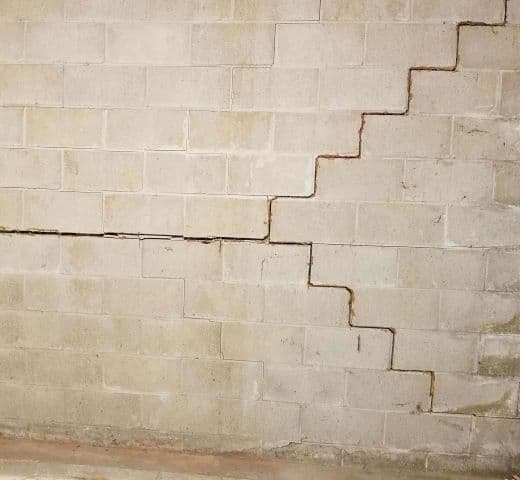How to Determine the Effectiveness of Basement Waterproofing?
The sanctuary of your home lies beneath, within the often-neglected space of your basement. In the heart of Toronto, a city that encounters both the gentleness of spring rain and the harshness of winter snowmelt, ensuring a waterproof basement is not just practical; it’s essential. How do you ascertain the efficacy of your basement’s waterproofing amidst these climatic variations? This article delves into the intricacies of basement waterproofing, equipping you with the knowledge to recognise its presence and highlighting the pivotal role that Toronto’s dedicated waterproofing companies play in fortifying your dwelling.
Grasping Basement Waterproofing
As the name implies, basement waterproofing revolves around erecting a barrier against water intrusion. This multifaceted process entails a meticulous blend of techniques and materials to shield your basement against moisture, thwarting water infiltration through walls and floors. Effective waterproofing is indispensable to preserving your basement’s integrity in Toronto’s dynamic climate, characterized by sudden downpours and persistent humidity.
Indicators of a Watertight Basement
- A Desert of Dryness: The most apparent confirmation of a well-waterproofed basement is its impeccably dry condition. If you’ve evaded the woes of dampness, puddles, or unsightly water stains, chances are your basement has undergone thorough waterproofing.
- Vanquishing Mold and Mildew: Mold and mildew thrive in damp environments. Thus, a basement devoid of these unwelcome residents suggests that successful waterproofing measures have been diligently executed.
- Aroma of Triumph: The telltale scent of mustiness usually signifies excessive moisture. A basement emanating a fresh and clean fragrance implies that the waterproofing endeavors have succeeded.
- Efficacious Drainage: Implementing an efficient drainage system is pivotal to effective basement waterproofing. The seamless redirection of water away from your foundation through well-maintained gutters and drains is a surefire indicator of thorough protection.
- Cracks Conquered: Visible crevices in your basement’s walls or floor can be gateways for water infiltration. Sealing these cracks with dedicated waterproofing materials demonstrates a proactive approach to safeguarding your basement.
- Windows of Excellence and Seals of Security: Well-waterproofed basements feature high-quality windows and meticulously sealed entry points. These elements function as impregnable barriers against water infiltration through gaps and openings.
- A Foundation of Strength: A waterproofed basement signifies a sturdy foundation. The commitment to regular inspections and requisite repairs is a cornerstone of the waterproofing process.
Championing Toronto’s Waterproofing Companies
In Toronto’s urban expanse, waterproofing companies emerge as sentinels of your basement’s resilience against water-induced harm. Armed with expertise and specialized tools, these professionals undertake the vital task of identifying vulnerabilities and implementing tailor-made waterproofing solutions. Here’s a comprehensive overview of the pivotal role played by esteemed Toronto waterproofing companies:
- Holistic Evaluation: Accomplished waterproofing contractors in Toronto embark on their journey by conducting an exhaustive assessment of your basement. This meticulous scrutiny aids in identifying existing problems and potential pitfalls.
- Customized Approaches: Recognizing the distinctive attributes of each basement, reputable waterproofing firms offer solutions tailored to your specific needs. This could encompass external or internal waterproofing techniques, installation of intricate drainage systems, and more.
- Premier Materials: Trusted companies employ top-grade waterproofing materials adhering to industry standards. This commitment ensures the durability and effectiveness of the implemented waterproofing strategies.
- Precision Installation: Precise installation of waterproofing systems is paramount. Trained professionals ensure the accurate application of materials and the strategic setup of drainage systems, ensuring efficient water diversion away from your home’s foundation.
- Enduring Safeguard: Toronto waterproofing companies are more than just quick fixes. They provide enduring protection by tackling current issues and averting future water-related predicaments.
Unveiling the Hidden Dangers of Basement Moisture
Beneath the surface of your home lies a potential threat that often goes unnoticed – basement moisture. While it may seem innocuous, the presence of water in your basement can cause a cascade of hidden dangers that can compromise both the structural integrity of your dwelling and the health of its occupants. Moisture infiltration, often caused by inadequate waterproofing, can result in mold growth, tarnishing the aesthetics of your basement and triggering respiratory issues and allergies and exacerbating existing health conditions. Moreover, unchecked moisture can corrode building materials, weakening the foundation that supports your home and potentially leading to costly structural repairs that could have been prevented.
As Toronto experiences its fair share of rain, snowmelt, and humidity fluctuations, the urgency of addressing basement moisture becomes even more pronounced. The unassuming accumulation of moisture can gradually seep into the walls and floors, creating an environment conducive to the growth of unwanted microorganisms. Unveiling these hidden dangers underscores the importance of proactive basement waterproofing measures, ensuring a safe, dry, and habitable space that protects both your investment and the well-being of your loved ones.
| Aspects | Grasping Basement Waterproofing | Unveiling Hidden Dangers of Basement Moisture |
|---|---|---|
| Definition | Techniques to shield basement from water intrusion | Revealing risks posed by basement moisture |
| Importance | Vital in Toronto’s dynamic climate | Underscores hidden dangers of moisture |
| Indicators of Effectiveness | Dryness, no mold/mildew, efficient drainage, sealed cracks, quality windows | Growth of mold/mildew, health implications, material corrosion |
| Role of Toronto Companies | Comprehensive evaluation, tailored approaches, quality materials, precise installation, long-term protection | Proactive measures to prevent health risks, structural damage |
| Influence of Climate | Toronto’s weather variations necessitate effective waterproofing | Toronto’s climate intensifies moisture risks |
| Long-Term Impact | Ensures basement’s integrity and prevents damage | Prevents health issues, structural deterioration |
| Conclusion | Highlighting necessity of waterproofing and Toronto companies’ role | Underlining the importance of addressing basement moisture |
Conclusion
In-home maintenance, the significance of basement waterproofing cannot be overstated. This sentiment resonates even more profoundly in Toronto’s ever-shifting climate. By discerning the telltale signs of effective waterproofing and engaging the services of esteemed Toronto waterproofing companies, you can be confident that your basement will remain impervious to moisture, free of mold, and a secure haven for years to come. Remember, an investment in waterproofing is an investment in the longevity and security of your cherished abode.
FAQs
FAQ 1: Why is basement waterproofing crucial in Toronto?
Answer: Basement waterproofing is vital in Toronto due to its variable climate. The city experiences heavy rain, snowmelt, and humidity fluctuations. Waterproofing safeguards your basement against moisture infiltration, preventing mold, mildew growth, and structural damage caused by water seepage. It ensures a dry and safe living environment.
FAQ 2: Can’t I seal cracks to prevent water entry?
Answer: Sealing cracks is essential, but effective basement waterproofing involves a comprehensive approach. Waterproofing contractors evaluate your basement’s vulnerabilities, address gaps, implement drainage systems, use quality materials, and ensure proper installation. This holistic approach prevents multiple avenues for water infiltration.
FAQ 3: Can basement moisture impact my health?
Answer: Yes, basement moisture can have profound health implications. Moist environments foster mold and mildew growth, releasing airborne spores that can trigger allergies, asthma, and other respiratory issues. Additionally, dampness can corrode building materials, potentially compromising the structural integrity of your home. Proper basement waterproofing mitigates these risks.

















 by rain which falls over a short span of time. This means an increase in the pressure on the sewer systems as well as overland systems of drainage. When the pressure from the storms becomes too severe, basement flooding occurs. To counter the effects of these storms, the
by rain which falls over a short span of time. This means an increase in the pressure on the sewer systems as well as overland systems of drainage. When the pressure from the storms becomes too severe, basement flooding occurs. To counter the effects of these storms, the
 building contractors encounter regularly. Lowe’s Canada is also aware of these issues. To debunk some of the myths of basement waterproofing and to discuss current methods for controlling moisture problems, Fiona Wagner of Lowe’s talked to our waterproofing expert.
building contractors encounter regularly. Lowe’s Canada is also aware of these issues. To debunk some of the myths of basement waterproofing and to discuss current methods for controlling moisture problems, Fiona Wagner of Lowe’s talked to our waterproofing expert.


